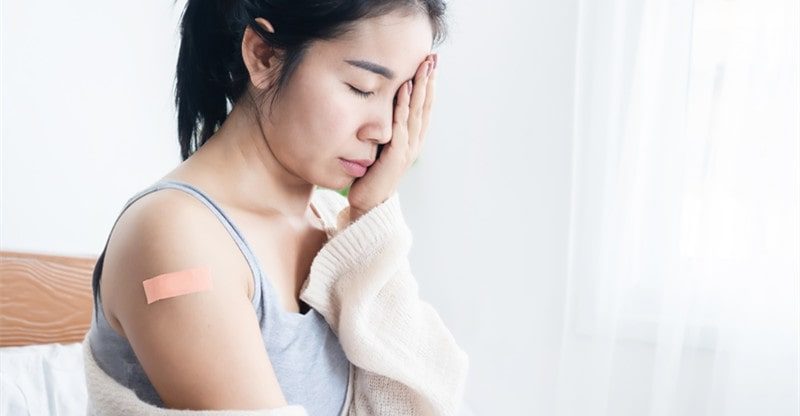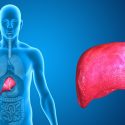How HPV Vaccines Affect Your Health
Human papillomavirus (HPV) is one of the most challenging viruses affecting millions of people across the world. HPV has two types: low-risk HPV and high-risk HPV. The low-risk type causes genital warts in both males and females, while the high-risk causes cervical cancer in females alone.
These two types are similar in how they are transmitted from one person to another. They can be passed on through skin-to-skin contact and sexual activity. Since the number of people affected by HPV increases, scientists have developed a vaccine that would help mitigate this issue.
However, you should know that these vaccines may cause side effects, ranging from mild to serious complications, including death. For example, the Gardasil vaccine lawsuit proves that the HPV vaccine Gardasil may cause serious complications, including death and infertility. However, the case may vary for different brands of the HPV vaccine.
That being said, it’s important to talk with your doctor before you ask for a dose of vaccine. This is to help you avoid and prepare for possible side effects and interactions, especially when you’re taking medications for an existing illness or disease.
Furthermore, here’s a simple guide discussing how HPV vaccines affect one’s health.
What Are The Benefits Of Getting HPV Vaccines?
The primary benefit of getting an HPV vaccine shot is to protect your body from low- and high-risk HPV types, particularly type 16 and 18. These are known to cause certain cancers, especially cervical cancer in women. Also, HPV vaccines can give additional protection from some HPV strains, type 6 and 11, that may cause genital warts.
According to the U.S Food and Drug Administration (FDA), only three vaccines are known and approved to provide protection against HPV. These are Gardasil, Cervarix, and Gardasil 9. in addition, these vaccines may need two to three doses in six months, depending on the person’s age. However, it would be best to take all the shots needed for maximum protection.
What Are The Problems Of Getting HPV Vaccines?
The most common and important issue of getting an HPV vaccine would be its potential side effects, which are common in any kind of vaccine. However, some people may not experience any side effects even after getting a full vaccine shot.
But for some, mild to moderate symptoms may appear, such as:
• Mild pain on the injection site
• Swelling of the injection site
• Slight fever
• Joint and muscle pain
• Mild to severe fatigue
• Nausea and vomiting
• Diarrhea
Usually, these symptoms may be gone after a few days. However, if such symptoms persist and if unusual side effects are present, it would be best to consult your doctor for help.
In addition, many people are wary of getting an HPV shot because of some issues concerning fertility. As mentioned above, there’s a winning lawsuit presenting a strong connection between the HPV vaccine and infertility.
Infertility happens when the body becomes immune to the vaccine, particularly Gardasil, attacking the vital proteins essential to maintaining a fully functioning ovary. That’s why many people are having second thoughts about getting a shot.
However, experts strongly state that multiple studies are showing that HPV vaccines are safe and do not cause infertility. Also, these studies demonstrate how HPV vaccines are much safer compared to other types of the vaccine when it comes to immediate and long-term side effects.
Other possible issues regarding HPV vaccines may include:
• HPV Vaccines’ Limited Ability: The vaccines may not protect you against all HPV-caused cancers, only limited cancer cases.
• Lack Of Protection Against Sexually Transmitted Diseases (STDs): Having a vaccine will not give you full protection against STDs. Therefore, it would be best to wear condoms and other barriers to prevent sharing and contracting STDs.
When Should You Get A Vaccine?
According to experts, the best time to get an HPV vaccine is before engaging in sexual intercourse. They also suggest that children may receive a full vaccine dosage at the age of nine and older.
But overall, it is recommended that all people be vaccinated at the age of 26. However, they can still get the vaccine even if they’re 27 years old and above but with advice from their doctors.
How Long Will The Vaccine Protect You?
The HPV vaccines are made to provide long-lasting protection. People who received their complete dosage have reported continuous protection for 12 years and show no signs of decreasing over time.
However, it is still advisable for women to have regular medical checkups to prevent and address issues related to cervical cancer. Also, the length of protection may vary, especially if you haven’t completed the number of injections required.
How To Prevent Getting HPV
Here are some tips that may help you prevent contracting HPV, especially if you’re not yet vaccinated:
• Always make sure to use protection when having sexual intercourse, such as dental dams and condoms.
• Refrain from having sex with multiple people.
• Avoid having sex when you or your partner has an open wound around your/their private parts.
• Avoid having sex with people with contagious and infectious warts.
• Stop bad habits, such as smoking cigarettes, which are known to decrease the level of your immune system.
• Always maintain and achieve a balanced and healthy diet full of vitamins, minerals, and other essential nutrients, which you can get from fruits, vegetables, and healthy cuts of meats.
Final Words
Human papillomavirus is one of the most common and challenging viruses continuously affecting millions of individuals across the globe. Its modes of transmission are skin-to-skin contact and engaging in sexual activities, especially unprotected sex. So, it’s important to get a vaccine before having sex with anyone.
In addition, HPV vaccines may affect one’s health by providing protection against different variants of HPV, especially those that cause certain cancers, particularly cervical cancer. However, it’s also important to know that these vaccines may cause side effects, such as nausea, vomiting, fatigue, body pains, and more.
If you’re experiencing persistent symptoms and unusual side effects, it would be best to consult your doctor immediately to prevent serious complications.




